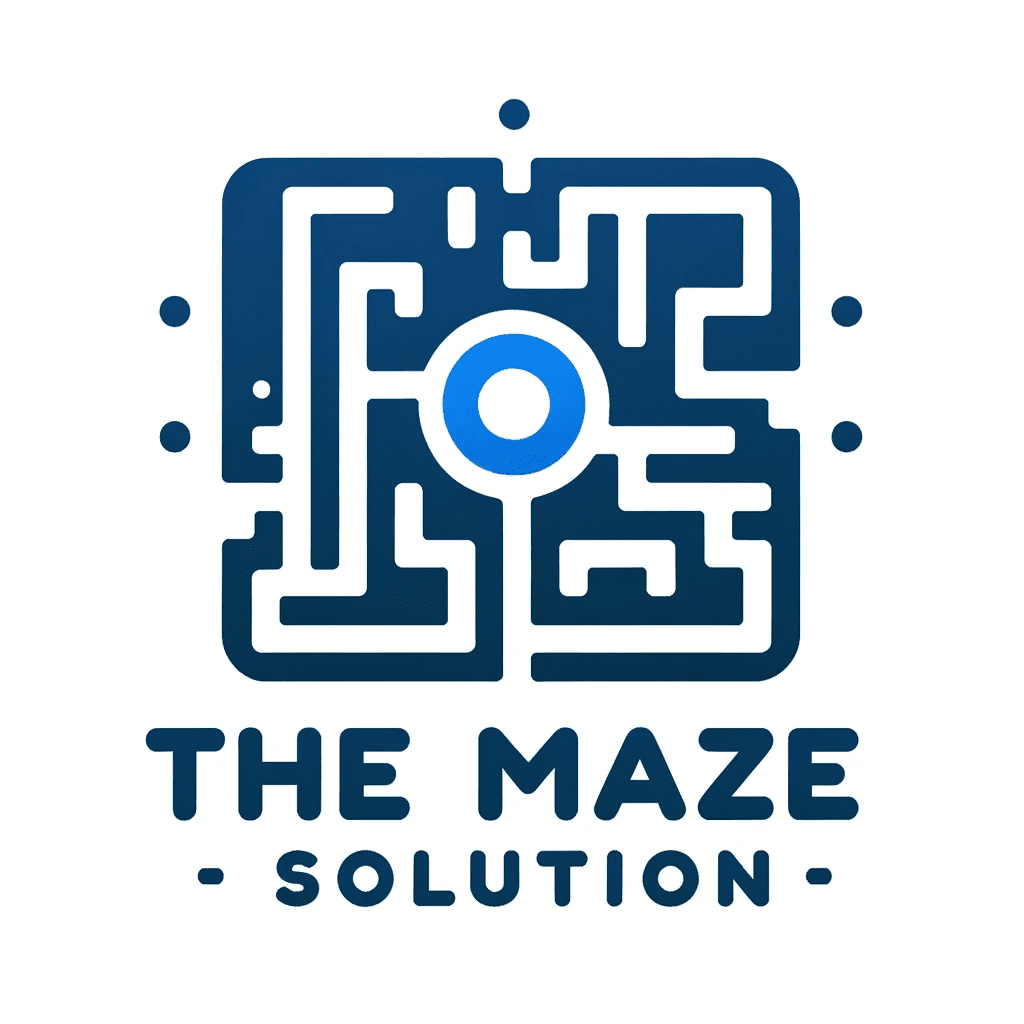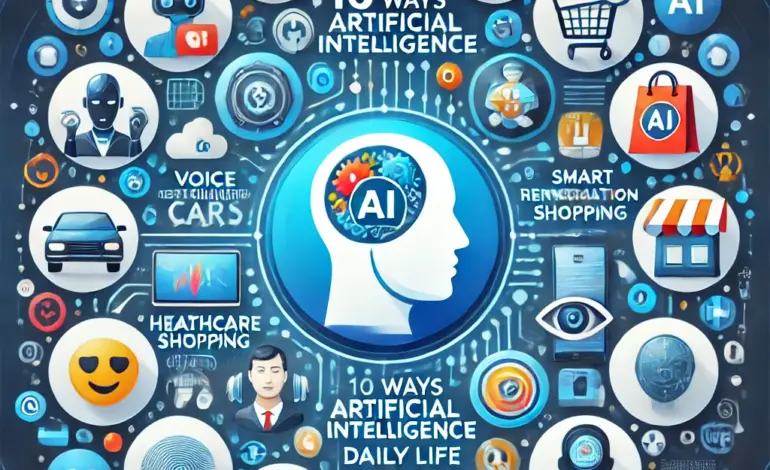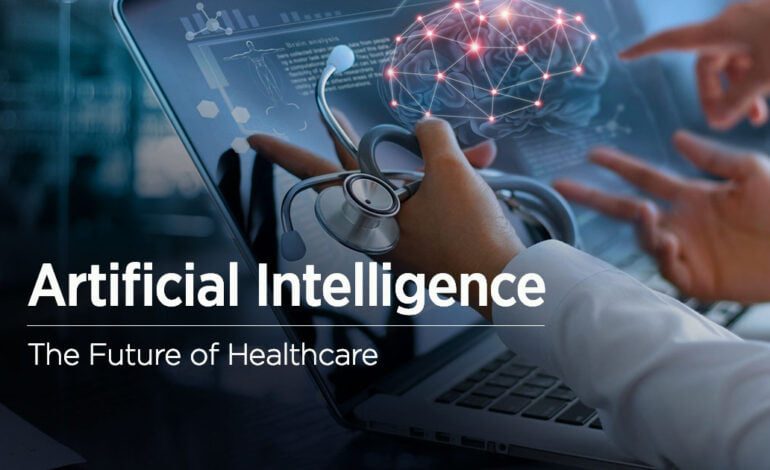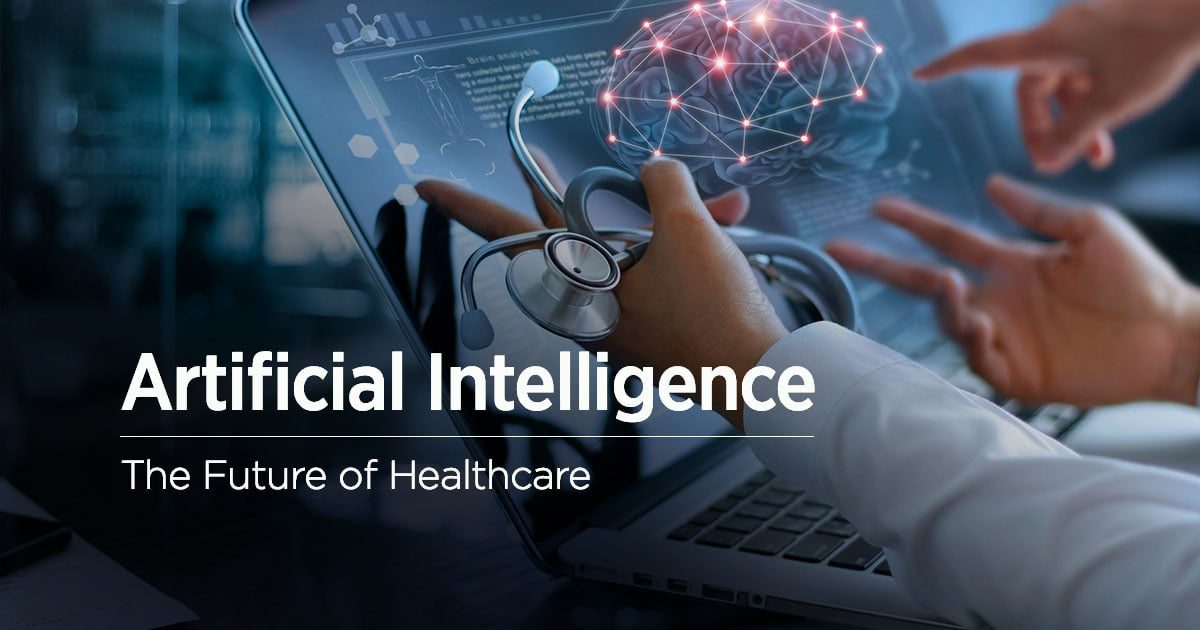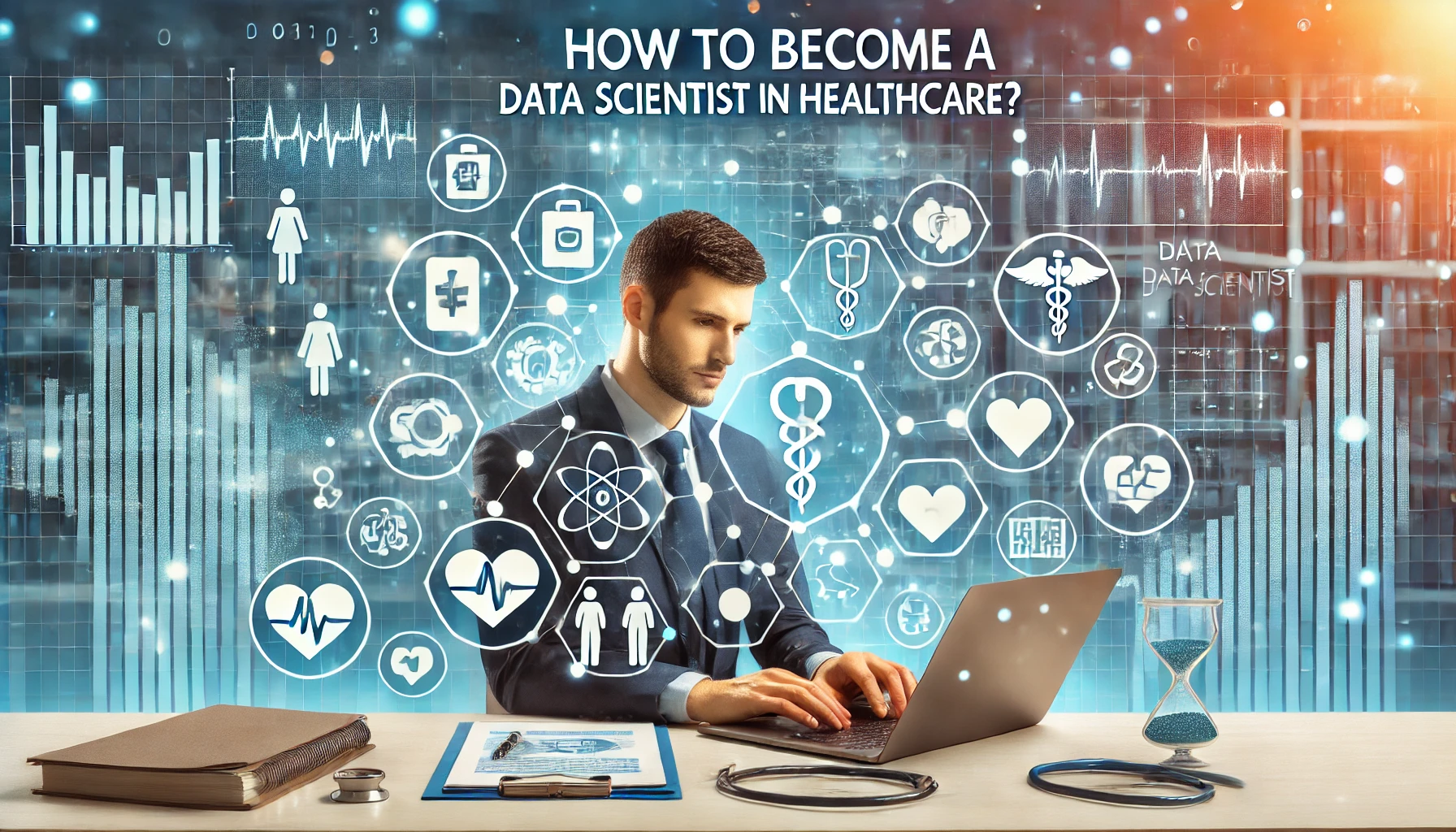How AI Will Transform Everyday Tech?
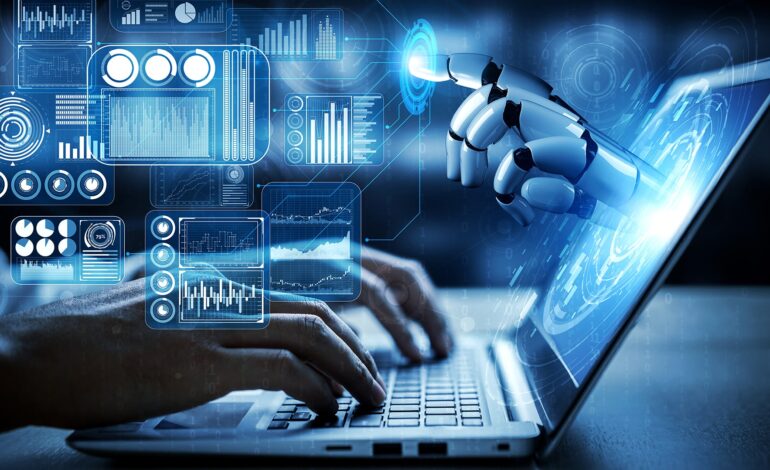
AI Will Transform Everyday Tech
Artificial Intelligence (AI) is rapidly becoming a central part of our lives, changing the way we interact with technology daily. By 2030, AI is projected to contribute $15.7 trillion to the global economy, underscoring its significant impact. This blog explores how AI will transform everyday tech, making our lives more efficient, personalized, and intelligent.
AI is set to change the way we work and live in many ways. With automation and machine learning, computers can now take on tasks that used to be done by humans, like data entry and customer service. This rise of machines means that many jobs will be replaced, leading to increased efficiency and cost savings for businesses. However, this shift can also displace many workers, making it essential for society to find ways to mitigate the negative impact of these changes on the workforce.
Examining the many forms of AI, including rule-based AI and deep learning, reveals how these distinct capabilities might enhance multiple sectors. Neural networks can process substantial data volumes for tasks such as image and speech recognition. As we progress, comprehending the application of AI for improved decision-making will be essential for adjusting to this new paradigm, guaranteeing that AI enriches our lives rather than complicating them.
1. Understanding Artificial Intelligence
Definition
Artificial Intelligence refers to the simulation of human intelligence in machines. These systems can perform tasks like visual perception, speech recognition, decision-making, and language translation, which typically require human intelligence.
Types of AI
1.Narrow AI:
This type of Artificial Intelligence is designed to perform a specific task, such as facial recognition or internet searches. It operates under a limited set of constraints and conditions.
2.General AI:
Also known as strong Artificial Intelligence, this encompasses systems that can understand, learn, and apply intelligence across a broad range of tasks, similar to human cognitive abilities. However, general AI is still largely theoretical and not yet achieved.
Current Applications
Artificial Intelligence is already embedded in many aspects of our technology:
Voice Assistants:
Virtual assistants like Siri, Alexa, and Google Assistant help users with tasks such as setting reminders, playing music, and answering queries.
Recommendation Systems:
Platforms like Netflix, Amazon, and Spotify use AI to analyze user behavior and recommend content tailored to individual preferences.
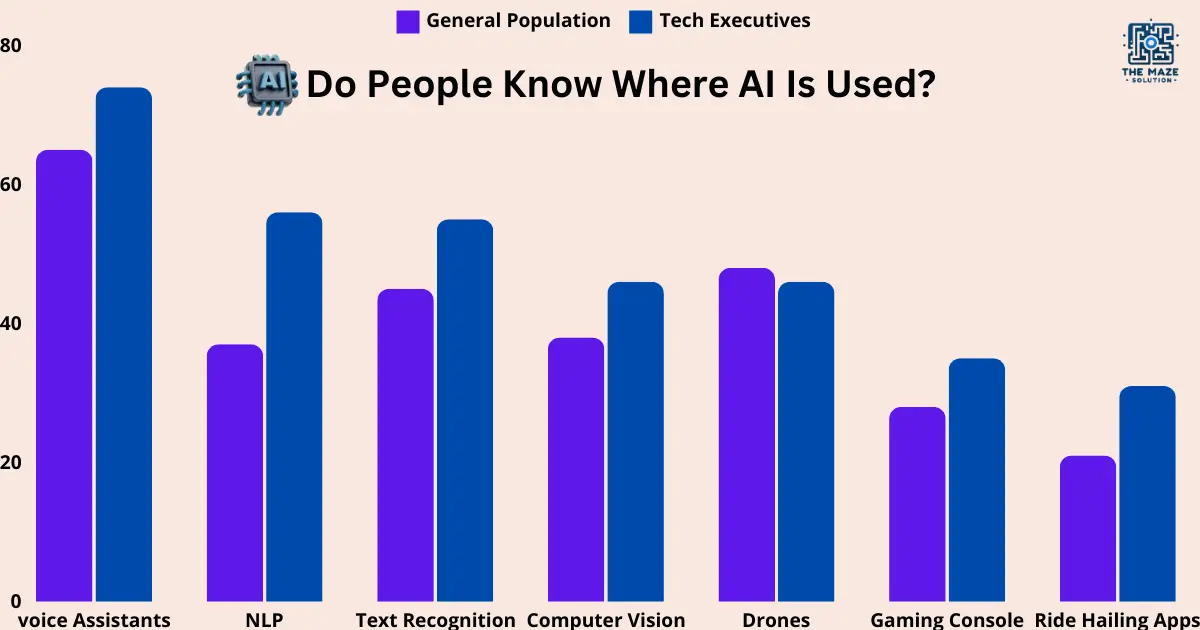
2. Artificial Intelligence in Consumer Electronics
Smartphones
AI significantly enhances smartphone functionality:
- Cameras: AI algorithms improve photo quality by adjusting settings like exposure, contrast, and focus in real-time.
- Battery Management: AI optimizes battery usage by learning user habits and managing power-hungry apps.
- Personal Assistants: AI-driven assistants help users manage their daily tasks, control smart home devices, and provide information quickly.
Home Appliances
AI integration in home appliances is transforming households:
- Smart TVs: AI recommends shows and movies based on viewing habits.
- Refrigerators: Smart fridges use AI to manage inventory, suggest recipes, and reduce food waste.
- Home Security Systems: AI enhances security with features like facial recognition, anomaly detection, and real-time alerts.
Wearables
Wearable technology benefits immensely from Artificial Intelligence:
- Health Tracking: AI monitors vital signs, tracks fitness activities, and provides personalized health insights.
- Personalized Recommendations: Wearables offer tailored fitness advice and workout plans based on user data.
3. Artificial Intelligence in Transportation
Self-driving cars and AI travel planners, which assist us in getting from point A to point B, will significantly transform the transportation industry. These facets of technology will influence how we travel, making it more efficient and safe. While autonomous vehicles are not perfect yet, they will eventually ferry us from place to place. With on-demand cars, people can travel to their destination at a lower cost and with greater convenience. This transportation revolution aims to make people’s lives better on the road by ensuring better safety and reducing 90% of traffic fatalities, making autonomous vehicles some of the safest drivers around.
Autonomous Vehicles
The development of self-driving cars is one of the most groundbreaking applications of AI:
- Safety: AI systems can analyze vast amounts of data from sensors and cameras to navigate and avoid obstacles, potentially reducing traffic accidents.
- Efficiency: Autonomous vehicles can optimize routes and reduce traffic congestion, leading to shorter travel times.
Smart Navigation
Artificial Intelligence improves GPS and navigation systems:
- Real-Time Traffic Updates: AI analyzes traffic patterns and provides real-time updates, suggesting alternative routes to avoid congestion.
- Predictive Analysis: AI predicts traffic conditions and suggests optimal departure times for smoother journeys.
Public Transport
Artificial Intelligence optimizes public transportation:
- Route Optimization: AI helps design efficient bus and train routes, reducing waiting times and improving service reliability.
- Scheduling: AI adjusts schedules based on demand, ensuring that resources are used efficiently.
4.AI in Healthcare
AI is transforming the healthcare industry in amazing ways. It uses big data and advanced analysis to help identify diseases quickly and accurately, which makes diagnostics much better. With its various applications, AI can also enhance personal health management and streamline drug discovery. Additionally, virtual nursing assistants can monitor patients and improve how humans interact with medical providers. Overall, AI is revolutionizing many areas in healthcare, making it more efficient and effective in delivering treatment.
Personal Health Assistants
AI-driven health apps and devices are playing a crucial role in personal healthcare management:
- Health Monitoring:
- How it works: AI-powered wearables and apps continuously monitor vital signs such as heart rate, blood pressure, and physical activity levels.
- Benefits: These devices provide real-time health insights and alerts, enabling users to keep track of their health status and detect any anomalies early. For example, a smartwatch can notify the user if it detects an irregular heartbeat, prompting them to seek medical attention.
- Medical Advice:
- How it works: AI-powered health apps can offer medical advice based on user inputs and historical data. They use algorithms to analyze symptoms and provide potential diagnoses or health tips.
- Benefits: These apps can remind users to take their medications, perform health-related tasks, or follow specific health routines. This ensures better adherence to treatment plans and promotes proactive health management.
Our Detailed Blog on Healthcare in AI is here , Read this now to get more info :The Pros and Cons of Artificial Intelligence in Education System
Diagnostics and Treatment
AI assists healthcare professionals in diagnosing diseases and suggesting treatment options with enhanced accuracy and personalization:
- Accuracy in Diagnostics:
- How it works: AI systems analyze vast amounts of medical data, including medical records, imaging, and lab results, using sophisticated algorithms to identify patterns and anomalies.
- Benefits: AI’s ability to process and interpret complex medical data leads to highly precise diagnoses. For example, AI can detect subtle changes in medical images that may be missed by the human eye, improving the early detection of diseases such as cancer.
- Personalized Treatment:
- How it works: AI develops personalized treatment plans by analyzing individual patient data, including genetic information, lifestyle factors, and previous treatment responses.
- Benefits: This personalized approach ensures that treatments are tailored to the specific needs of each patient, potentially improving outcomes and reducing side effects. For example, AI can help oncologists create customized chemotherapy plans based on a patient’s genetic makeup and the characteristics of their cancer.
Our Detailed Blog on Healthcare in AI is here , Read this now to get more info :Exploring the Impact of Artificial Intelligence in Medicine
Robotic Surgery
AI in robotic surgery offers numerous benefits:
- Precision: AI-driven robots perform surgeries with greater accuracy, reducing the risk of complications.
- Minimally Invasive Procedures: AI enables more precise and less invasive surgical techniques, leading to faster recovery times.
5. AI in Retail and Shopping
Personalized Shopping
AI creates highly personalized shopping experiences:
- Recommendation Engines: AI analyzes purchase history and browsing behavior to recommend products tailored to individual preferences.
- Virtual Try-Ons: AI-powered apps allow customers to virtually try on clothes or makeup, enhancing the online shopping experience.
Customer Service
AI improves customer service through automation:
- Chatbots: AI-driven chatbots handle customer inquiries, provide support, and resolve issues quickly and efficiently.
- Virtual Assistants: AI assists customers in finding products, making purchases, and tracking orders.
Inventory Management
AI optimizes inventory and supply chain management:
- Demand Forecasting: AI predicts product demand, helping retailers manage stock levels and reduce overstock or stockouts.
- Supply Chain Optimization: AI enhances supply chain efficiency by analyzing data to identify bottlenecks and streamline operations.
6. AI in Communication and Social Media
Content Personalization
On social media platforms, AI curates personalized content:
- News Feeds: AI analyzes user interactions to prioritize the content that is most relevant to each user.
- Advertising: AI targets ads based on user behavior and preferences, increasing engagement and conversion rates.
Chatbots
AI-driven chatbots enhance communication.
- Customer Interaction: Chatbots provide instant responses to customer queries, improving satisfaction and engagement.
- Automation: AI automates routine tasks, allowing human agents to focus on more complex issues.
Security and Moderation
AI helps maintain a safe online environment.
- Content Moderation: AI detects and removes harmful or inappropriate content, ensuring a safer user experience.
- Fraud Detection: AI identifies and prevents fraudulent activities, protecting users and platforms from scams.
7. AI in Education
AI is set to change how humans of all ages learn in exciting ways. By using machine learning, natural language processing, and facial recognition, AI can digitize textbooks, detect plagiarism, and even gauge the emotions of students. This helps teachers determine who is struggling or feeling bored in class. AI will tailor the learning experience to meet each student’s individual needs, making education more effective and engaging for everyone, both now and in the future.
Personalized Learning
AI tailors educational content to individual needs:
- Adaptive Learning Platforms: AI adjusts the difficulty of lessons based on student performance, providing a customized learning experience.
- Learning Analytics: AI analyzes student data to identify strengths and weaknesses, helping educators develop targeted interventions.
Virtual Tutors
AI-powered virtual tutors offer personalized assistance:
- 24/7 Availability: Virtual tutors provide round-the-clock support, helping students with homework and exam preparation.
- Interactive Learning: AI tutors use interactive methods to engage students and enhance their understanding of complex subjects.
Administrative Tasks
AI streamlines administrative tasks in education:
- Grading: AI automates grading, saving time and ensuring consistency.
- Scheduling: AI optimizes class schedules and resource allocation, improving efficiency.
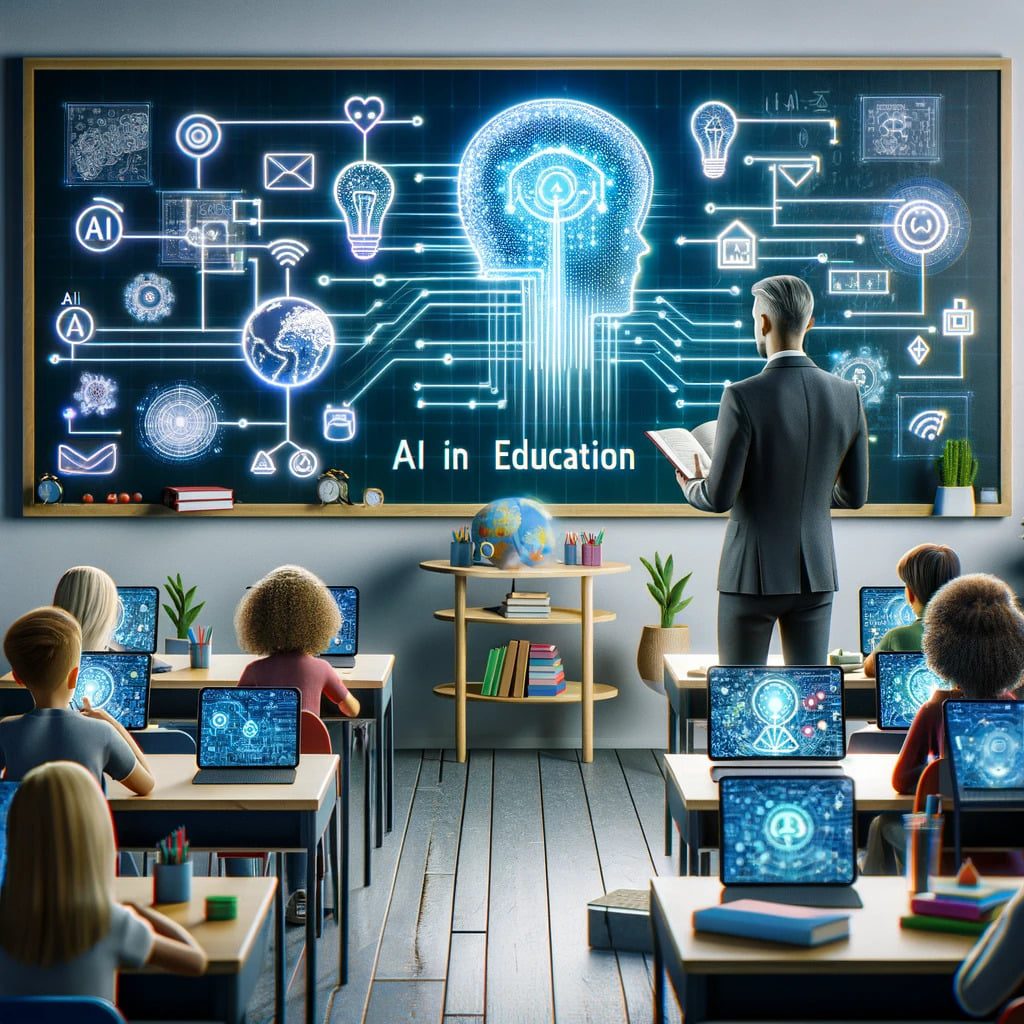
Our Detailed Blog on Education in AI is here , Read this now to get more info :The Pros and Cons of Artificial Intelligence in Education System
8. Future Trends and Challenges
Upcoming Innovations
uture AI advancements promise even greater transformations:
- Augmented Reality (AR): AI-enhanced AR will revolutionize fields like education, gaming, and retail.
- Smart Homes: AI will make homes even smarter, integrating more seamlessly into daily life.
Ethical Considerations
Addressing ethical concerns is crucial:
- Privacy: Ensuring that AI systems respect user privacy and data security.
- Job Displacement: Managing the impact of AI on the workforce by fostering reskilling and education programs.
Regulation and Governance
Responsible AI development requires effective regulation:
- Policy Development: Governments and organizations must collaborate to create policies that guide ethical AI use.
- Oversight: Establishing oversight mechanisms to monitor AI systems and ensure they operate fairly and transparently.
Artificial Intelligence is poised to transform everyday technology, making our lives more efficient, personalized, and intelligent. From enhancing smartphones and wearables to revolutionizing transportation and healthcare, AI’s impact is profound and far-reaching. As we embrace these advancements, it is essential to address ethical concerns and develop responsible policies to ensure AI’s benefits are realized while minimizing potential risks.
Stay informed about AI developments and consider how you can integrate AI into your daily life to take full advantage of its transformative potential. The future of everyday tech, powered by AI, is bright and full of possibilities.
Deepfakes and Misinformation
The rise of fakes is changing how we view reality and fiction, making it hard for the general public to identify what is real. This technology has the ability to rapidly disseminate false information, leading to perilous situations where individuals and even entire nations may fall prey to deceit. The impact of fakes is serious; they can blur the lines between truth and lies, leading to political propaganda that can threaten democracy. Furthermore, these misleading videos could lead to financial fraud or put students in compromising positions. In my experience, it’s vital to question everything we see online, as the potential use cases for this technology can lead to both creativity and chaos.
Data Privacy
As AI technology grows, consumers are becoming more worried about data privacy. The training of AI models often uses vast amounts of public data, which can lead to risks for both individuals and companies. A single breach can expose sensitive personal information, affecting millions and causing serious damage to organizations. Furthermore, the use of generative AI tools raises concerns about protecting intellectual property and non-public company information. This implies that each time we utilize these technologies, we must contemplate the potential for data security breaches and comprehend our legal rights to prevent any vulnerability.
Automated Weapons
The rise of AI in automated weapons development poses a major threat to both soldiers and civilians. Without proper controls, countries can deploy these deadly systems, potentially failing to discriminate between larger groups of people. If such artificial intelligence falls into the wrong hands, it could lead to irresponsible use, causing harm to innocent populations. It is critical for us to recognize that while AI can improve technology, its use in weapons can have serious consequences for the global general population.
How will AI transform our future?
In our time, artificial intelligence (AI) is rapidly evolving and becoming an important part of everyday technology, shaping the future in unprecedented ways. Machine learning, natural language processing, and computer vision have made remarkable advancements, enabling AI to automate mundane tasks, solve complex problems, and create innovative products and services across multiple industries. This game-changer is considered a catalyst for introducing new technologies that enable us to explore and embrace the digital age more fully. As someone immersed in this field, I have witnessed how AI can rapidly transform processes, revolutionizing the way we interact with technology.
How AI is transforming technology?
AI is revolutionizing technology by changing how we collect and analyze data. With AI-powered tools, we can now process large amounts of information at a faster rate, making it easier to find what we need. This shift has a significant impact on our daily lives, especially through smartphone technology and personal assistants like Siri. The use of natural language processing, audio recognition, and image recognition has improved the user experience, allowing us to interact with various forms of media seamlessly. I’ve noticed that these new technologies not only enhance efficiency but also provide personalized recommendations that suit our preferences, making gadgets a staple part of our routine. Overall, AI is making it possible to consume and access information in ways that were once unimaginable.
How will AI change daily life?
AI will liberate us from routine tasks, giving us more time to focus on what truly matters. By using technology that can perform quantitative analysis and optimization, we can make our lives easier and more productive. This will not only boost each human’s productivity but also allow for deeper thinking and more creative work. As we work symbiotically with AI, we will discover exciting economic opportunities that can lead to unprecedented wealth. However, with this responsibility, we must plan carefully and think about how to reorient our world to ensure that we maintain what makes us human. In my opinion, embracing AI in our daily lives can really amplify our potential and help us perform better in stimulating jobs that are both rewarding and meaningful.
How is AI changing the tech industry?
AI is making huge advancements in the technology sector, especially in IT operations. By using machine learning and AI-driven software, companies can now analyze operational data to identify patterns and predict potential system failures. This means IT teams can intervene proactively, reducing downtime and improving overall performance. For example, predictive maintenance helps in detecting anomalies before they become serious issues, allowing for corrective action without much human intervention.
On the other hand, AI-powered chatbots are being widely employed in customer service to handle vast amounts of customer data. These chatbots excel at understanding issues and generating immediate responses, which significantly enhances customer satisfaction while also reducing workload for IT staffers. With remote monitoring systems and integrated IT solutions, businesses can ensure smoother IT system management, improving operational efficiency and maximizing uptime. H2O.ai, a leading company in machine learning, exemplifies how AI software can transform the way we monitor operations and change course effectively.
